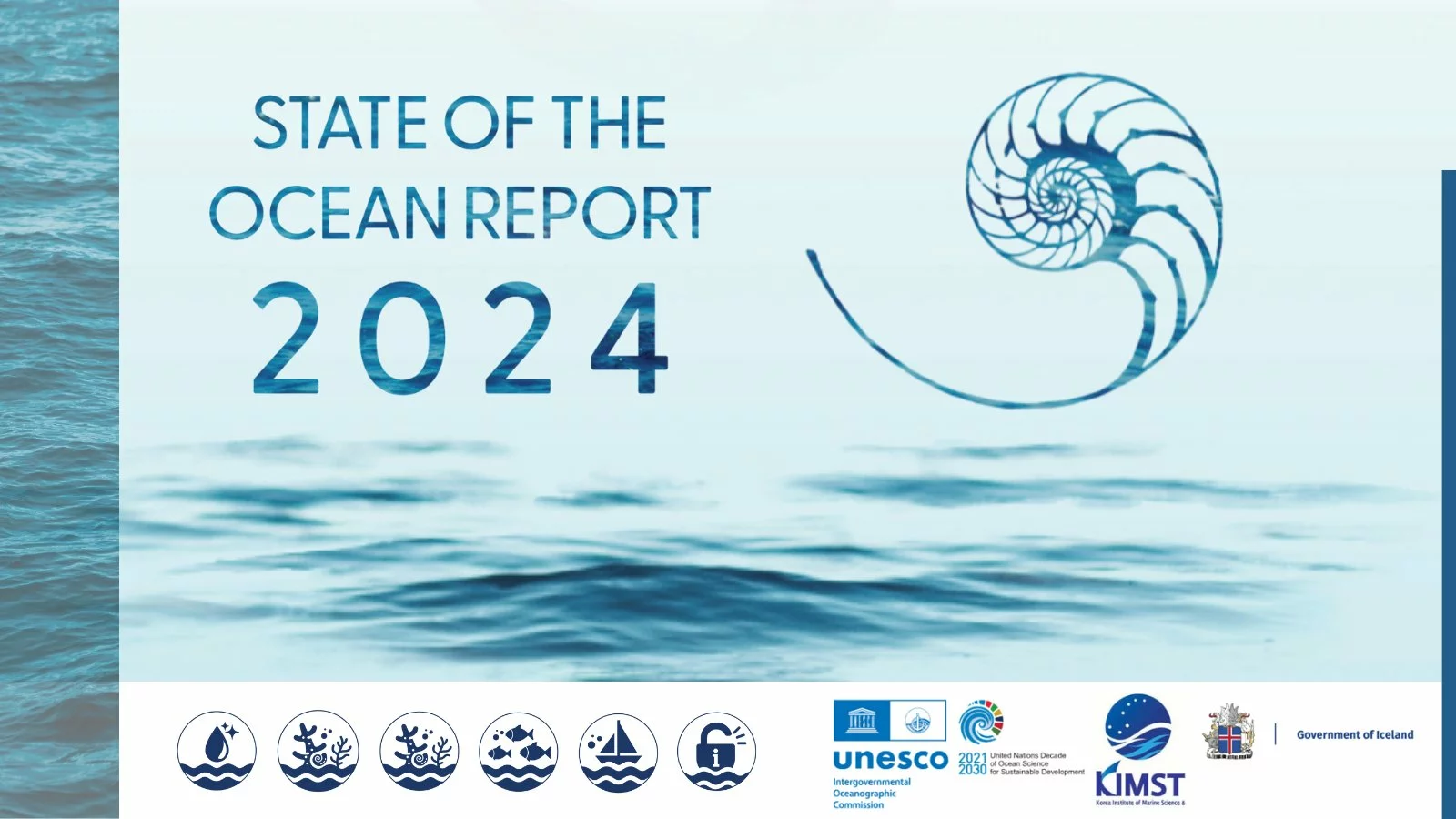- Courses
- GS Full Course 1 Year
- GS Full Course 2 Year
- GS Full Course 3 Year
- GS Full Course Till Selection
- Online Program
- GS Recorded Course
- NCERT (Recorded 500+ Hours)
- Polity Recorded Course
- Geography Recorded Course
- Economy Recorded Course
- AMAC Recorded Course
- Modern India, Post Independence & World History
- Environment Recoded Course
- Governance Recoded Course
- Science & Tech. Recoded Course
- International Relations and Internal Security Recorded Course
- Disaster Management Module Course
- Ethics Recoded Course
- Essay Recoded Course
- Current Affairs Recoded Course
- CSAT
- 5 LAYERED ARJUNA Mentorship
- Public Administration Optional
- ABOUT US
- OUR TOPPERS
- TEST SERIES
- FREE STUDY MATERIAL
- VIDEOS
- CONTACT US
UNESCO State of Ocean Report
UNESCO State of Ocean Report
10-06-2024

The UNESCO 2024 State of Ocean Report provides valuable insights into the current state of global oceans, highlighting the challenges posed by climate change and human activities.
About UNESCO State of Ocean Report:
- Establishment and Purpose:
- The UNESCO State of the Ocean Report was initiated by the Intergovernmental Oceanographic Commission (IOC-UNESCO) during the 2022 United Nations Ocean Conference.
- It serves as an accessible overview of the ocean's current status, supporting the monitoring of the UN Decade of Ocean Science for Sustainable Development (2021-2030) and encouraging actions toward a sustainable ocean future.
- Inaugural Edition and Subsequent Releases:
- The inaugural 2022 edition featured insights from over 100 marine science experts across various fields, including ocean acidification, pollution, and tsunami warning.
- Subsequent annual editions of the report are released on World Oceans Day (June 8), aligning with the seven outcomes of the UN Ocean Decade.
Key Findings of the Report:
- Ocean Warming:
- The upper 2,000 meters of the oceans have experienced significant warming, with the rate of warming increasing from 0.32 ± 0.03 watt per square meter (W/m²) from 1960 to 2023 to 0.66 ± 0.10 W/m² in the last two decades.
- Ocean Heat Absorption and Impacts:
- Oceans absorb approximately 90% of the Earth's excess energy, resulting in increased deoxygenation and posing a threat to marine ecosystems and human economies reliant on them.
- Ocean Acidification:
- Ocean acidification is on the rise globally, particularly in the open ocean, with a notable pH decline since the late 1980s.
- More comprehensive data from coastal areas is required.
- Sea Level Rise:
- Sea levels have consistently risen since 1993, emphasizing the need for improved monitoring systems at all scales.
Marine Carbon Dioxide Removal (mCDR) Technologies:
- There is growing interest in mCDR technologies, but their ecological impacts and effectiveness remain uncertain.
Deep Ocean Mission (DOM): India's Ambitious Initiative:
- The Deep Ocean Mission (DOM) is an ambitious Indian initiative to explore and harness the depths of the ocean, with a focus on developing technologies for deep-sea mining, manned submersibles, and underwater robotics.
- The 5-year mission, approved by the Union Cabinet in 2021 with a budget of nearly ₹4,077 crore, also aims to provide ocean climate change advisory services, conduct deep-ocean surveys and exploration, explore energy and freshwater resources from the ocean, and establish advanced marine stations for ocean biology.
Must Check: Best IAS Coaching In Delhi


